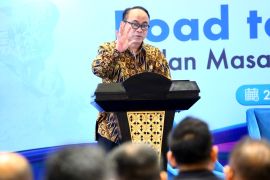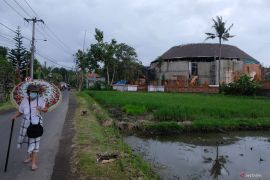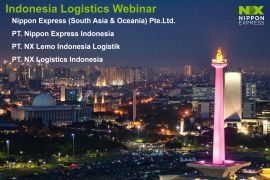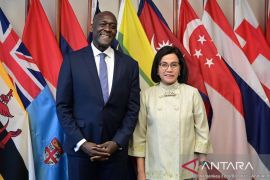During his presidential campaign back in 2014, Jokowi had asserted that his foreign policy would be more "Indonesia first," meaning the relations with other countries should offer benefits to the Indonesian people.Jakarta (ANTARA News) - Indonesia has decided that its foreign policy in 2017 will focus on intensifying interactions with other countries to protect the nations interests, security, ideological objectives, and economic prosperity.
To this end, the country continues to participate in implementing world order based on freedom, lasting peace, and social justice.
Creating a peaceful world is also one of the national goals outlined in the Preamble of the 1945 Constitution of the Republic of Indonesia. It demonstrates that Indonesia prioritizes the importance of its active participation in international associations through multilateral cooperation, friendship, and partnership.
As creating world peace gains greater attention of the Indonesian government, the country remains committed to fighting for Palestinian independence. It has also become one of the priorities of Indonesias foreign policy in 2017.
Indonesia will seek greater support for Palestinian independence through a two-state solution, Foreign Affairs Minister Retno Marsudi stated.
"Indonesia will never waver from its commitment to supporting the Palestinian struggle for independence," she noted in the 2017 Annual Press Statement of the Foreign Affairs Minister in early January.
With regard to the efforts, Indonesia supports the International Conference initiated by France and has attended the Paris meeting in June 2016 and will attend the next meeting in January 2017.
In demonstrating strong support for the Palestinian people, the Indonesian government has achieved a diplomatic breakthrough by establishing an honorary consulate in Ramallah and is planning to open a House of Indonesia in Palestine.
Indonesia also initiated the Extraordinary Summit of Palestine and Al-Quds Al-Sharif in Jakarta in March 2016 and endorsed the Jakarta Declaration that supports Palestinian independence through various concrete measures and breakthroughs.
Besides emphasizing unwavering support for Palestinian independence, Minister Marsudi highlighted other priority areas in the foreign policy for 2017: strengthening the Association of Southeast Asian Nations (ASEANs) unity and centrality as well as its contribution in the region, fostering peace and stability in the East Asian region by accelerating negotiations on the Code of Conduct, building Indian Oceans regional architecture, and optimizing support for Indonesias candidacy as a non-permanent member of the United Nations Security Council (UNSC) for 2019-2020.
Speaking in connection with candidacy in the UNSC, Minister Marsudi affirmed that Indonesia is determined to delivering concrete contribution towards global peace in accordance with the nations constitutional mandate.
Furthermore, Indonesia should establish a proactive foreign policy with Islamic countries to promote peace and justice, Executive Director of the Centre for Strategic and International Studies Philips J. Vermonte urged.
"We have agreed in our Constitution that we would uphold moderate Islam, in which we live in harmony with other religions," he stated during a public lecture "Indonesia Foreign Policy: Review and Outlook 2017" held on Tuesday (Jan 24).
In promoting peace across Islamic nations, Indonesia must continue to uphold the constitutional principle as a country that is not solely based on one religion although majority of the Indonesian population embraces Islam.
"It must be reflected in our foreign policy too," he affirmed.
Meanwhile, founder of the Foreign Policy Community of Indonesia Dino Patti Djalal has urged Indonesia to act prudently while responding to changes in global geopolitics.
"Due to major geopolitical changes in the world, the relationships and partnerships among major powers will also change. This will have an impact on Indonesia, such as hurdles in relations between the US and Russia, Russia and China, the ASEAN and China, and the US and EU. Hence, we must reposition ourselves cleverly, so that we are not affected badly," he stated.
Another challenge looming large over Indonesia is the political changes in the ASEAN resulting from the dispute in the South China Sea.
"Indonesia continues to promote regional unity among ASEAN countries," he added.
It is important for the ASEAN to work at the grassroots level to reinforce regional unity and economic growth.
As the biggest country in the ASEAN region, Indonesia can promote closer unity and integrity among member countries to avoid regional turmoil.
Djalal also pointed out that protection of Indonesian citizens abroad and diaspora issues remain a priority for the Indonesian government in 2017.
He stated that the Indonesian government was paying greater attention to international and critical issues and domestic and global developments, such as political issues, climate change, geopolitical changes, democracy, drug executions, terrorism eradication, humanitarian issues, maritime collaboration, and peacekeeping issues.
In addition, the nation will continue its approach of quiet diplomacy to address various sensitive issues in the regional and global arena, Deputy for Government Policy Support, Secretariat of the Vice President of Indonesia Dewi Fortuna Anwar noted.
"We will witness more quiet diplomacy, but it will get the job done, as we do not want to fail by engaging in excessive discourse," she emphasized.
The practice of quiet diplomacy, aimed at mainly strengthening people-to-people relations and preventing conflicts, is in line with the governance style of President Joko Widodo (Jokowi) who prefers to work without making much noise.
Indonesian diplomatic measures are mostly undertaken in a constructive manner as was witnessed during Foreign Minister Retno Marsudis recent visit to Myanmar to provide humanitarian aid and to conduct several meetings, one of them being with the UN in an attempt to help resolve the conflict that has affected the Rohingya people in Rakhine State.
The approach of quiet diplomacy is also apparent from President Jokowis preference to conduct bilateral meetings instead of speaking at international forums, as was followed by his predecessor, Susilo Bambang Yudhoyono.
During his presidential campaign back in 2014, Jokowi had asserted that his foreign policy would be more "Indonesia first," meaning the relations with other countries should offer benefits to the Indonesian people.
On the other hand, Anwar believes there are times when Indonesia should have a clear articulation in responding to issues that threaten both regional and global stability, especially addressing interminable conflicts between Muslims in the Middle East and the use of force as a solution to the conflict in the South China Sea.
"To respond to such issues, Indonesia must signify its willingness to stand up and speak more loudly," Anwar, who is also a political observer of the Indonesian Institute of Sciences, emphasized.(*)
Reporter: Yashinta Difa
Editor: Heru Purwanto
Copyright © ANTARA 2017











